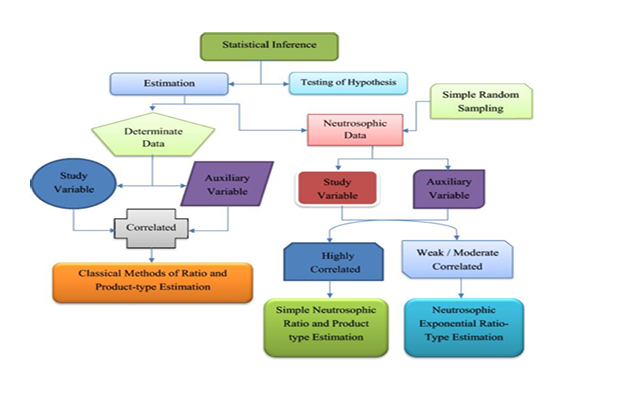Construction Of Almost Unbiased Estimator For Population Mean Using Neutrosophic Information
Keywords:
Classical statistics, neutrosophic statistics, auxiliary information, bias, mean squared error, percent relative efficiency.Abstract
In classical statistics, the population mean is estimated using determinate, crisp data value when
auxiliary information is known. These estimates can often be biased. The main objective of this study is to
introduce the neutrosophic estimator with the minimum mean squared error (MSE) for the unknown value of
the population mean as well as overcome the limitations of classical statistics when dealing with ambiguous
or indeterminate data. Neutrosophic statistics was introduced by Florentin Smarandache. It is a generalisation
of classical statistics that addresses ambiguous, unclear, vague, and indeterminate data. In this study, we have
proposed neutrosophic almost unbiased estimator that use known neutrosophic auxiliary parameters to
estimate the neutrosophic population mean of the primary variable. Equations for bias and mean squared error
are calculated for the suggested estimators up to the first order of approximation. The proposed estimator
performs better than the other existing estimators with respect to the MSE and percent relative efficiency
(PRE) criteria. The estimator with the highest PRE or lowest MSE is advised for practical utility in various
kinds of application areas. The theoretical conclusions are validated by the empirical analysis, which made
use of the real data sets.
Downloads

Downloads
Published
Issue
Section
License
Copyright (c) 2024 Neutrosophic Sets and Systems

This work is licensed under a Creative Commons Attribution 4.0 International License.






